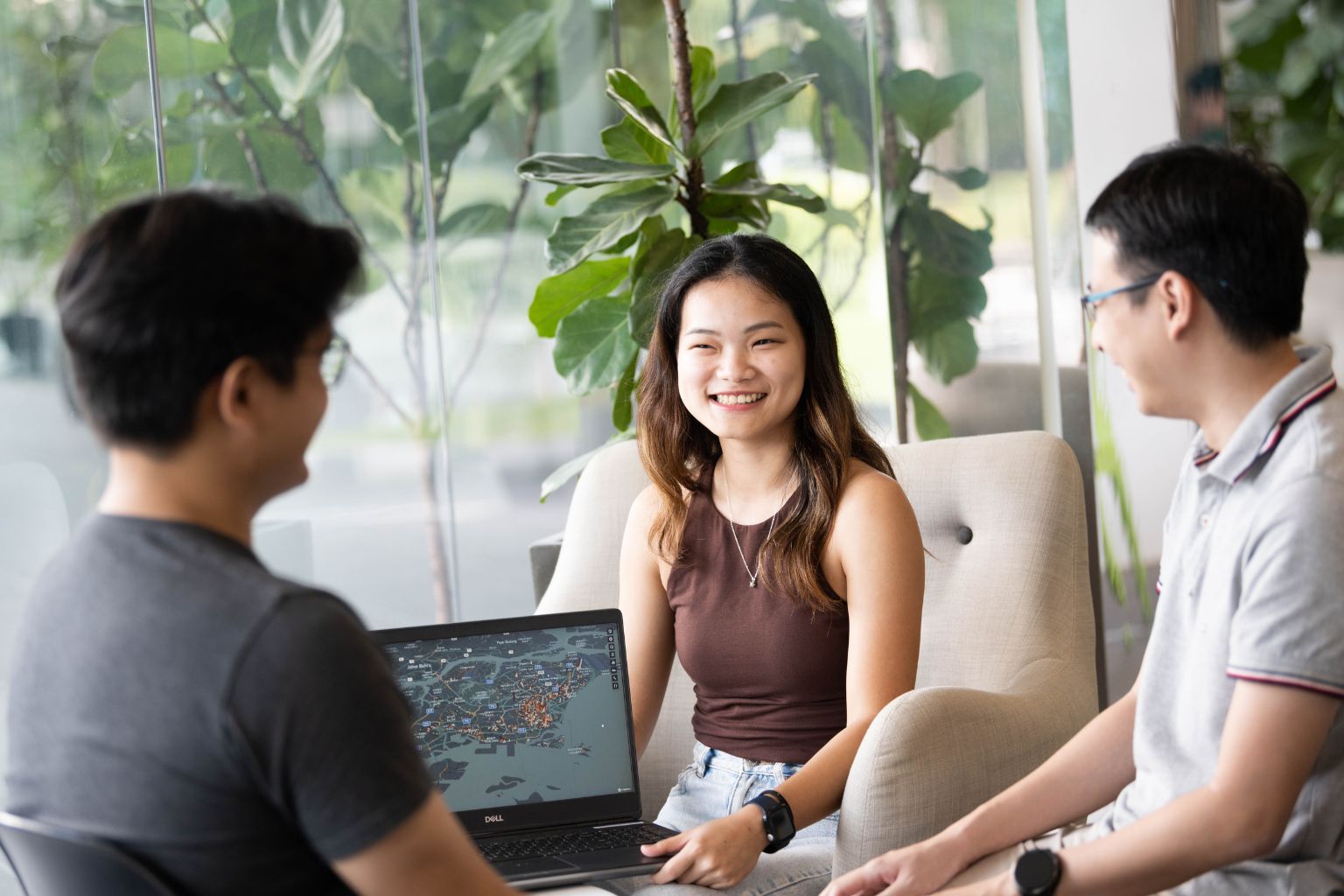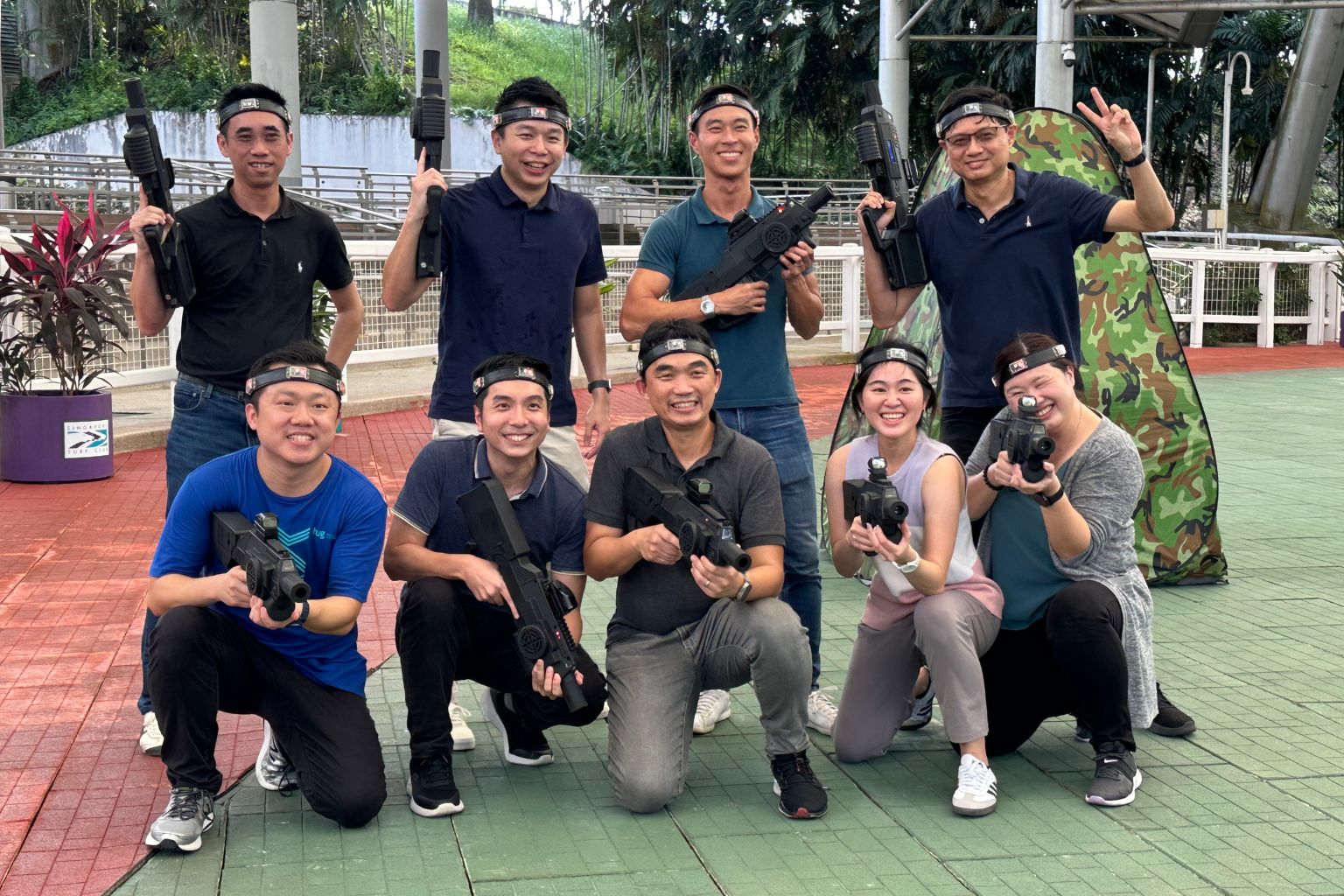Having a good mentor at work can make a world of difference. Ms Joycelyn Teo and Mr Neo Ya Kai share that their mentors guided them right from the start when they joined the Defence Science and Technology Agency (DSTA).
In DSTA, every employee is paired with a mentor who provides career guidance.
“Every week, my mentor would check in with me to answer any questions and share insights from his earlier projects to give me more exposure in the domain of intelligence. This helped me a lot at the start of my DSTA journey,” says Ms Teo, 24, a senior engineer in DSTA’s Information Programme Centre.
Mr Neo, 33, a programme manager in DSTA’s Naval Systems Programme Centre, has benefited from the guidance of not one but three mentors so far in his eight years, with each mentor contributing to his growth in different areas. “My first mentor has been coaching me since I first joined DSTA,” he says.
Such is the deeply rooted culture of mentoring and lifelong learning at Singapore’s premier defence technology organisation.
The agency is ranked among Singapore’s top 250 employers in 2024, in a list compiled by global research firm Statista in collaboration with The Straits Times.
Since its inception in 2000, DSTA has been at the forefront of innovation, delivering advanced capabilities to the Singapore Armed Forces and contributing beyond defence to meet the nation's needs. By continuously investing in its employees, it has built a deep pool of expertise among them.

Immersive learning to deepen expertise
Mr Neo is part of this pool. He played a key role in customising German-built Invincible-class submarines together with the Republic of Singapore Navy. To deepen his expertise in submarine systems, DSTA sent him abroad for an immersive learning experience.
He says: “I spent time at our overseas project office in Germany, overseeing the production, engineering and testing phase of the Invincible-class submarines. This deployment enabled me to better guide younger engineers in understanding the integration of a complex naval platform, and in conducting the relevant tests to validate the vessels’ performance.
“It also allowed me to hone my project management and systems engineering skills, and I learnt from German engineering companies’ deep knowledge of shipbuilding and system integration.”
Upon his return to Singapore, Mr Neo shared his newfound knowledge not only with his submarine project team, but also with teams from other projects, such as the naval surface domains.
Culture of collaboration
This sharing of expertise across DSTA happens every day.
Ms Teo and her colleagues, for example, share tools that enhance developer productivity through email and chat groups. Her job involves developing software apps for intelligence analysis, leveraging data science and artificial intelligence techniques to help combat online threats such as fake news and propaganda.
“Each time something interesting comes up in the technology space, we share it with one another and discuss how it can be beneficial to our work,” says Ms Teo. “This collaborative culture ensures that we always stay on top of things and seek out state-of-the-art solutions.”
DSTA is also committed to continuous learning and building deep technical competency. It has put structured programmes in place to help staff build technical skills through diverse training and learning options. These include in-house courses such as the Foundation Course, Systems Engineering and Management Course, and courses designed by institutes of higher learning and industry partners.
The DSTA Lecture Series and Tech Talks help staff stay abreast of industry and technological developments. Guest speakers from leading institutions are invited regularly to discuss topics like autonomous systems and exploration, among others.
Ms Teo and her colleagues often reach out to industry professionals to collaborate on new projects. “I have just started on a project with a University of Cambridge professor whose area of research is automated fact-checking to counter fake news,” she says.
“By working with these experts, we gain knowledge from them that can be applied to our main DSTA projects.”
Under the DSTA Technology Graduate Programme (TGP), Ms Teo also regularly visits her alma mater, the National University of Singapore, to attend courses.
The DSTA TGP equips fresh or recent graduates, who join as engineers, with a holistic foundation in their early careers. Through this two-year structured development programme, they discover their career interests, broaden their technical horizons, build strong technical foundations, hone their leadership skills and strengthen networks.
Each employee in DSTA has a Personalised Career Development Plan, designed to understand each individual's career needs and priorities, and provide the resources to help them excel in their career.
Says Ms Teo: “I’ve attended a course called ‘Architecting Software Solutions’ as well as a scrum master course that teaches project management in a software context.
“With all these initiatives for staff, DSTA really feels like a place of constant learning. The culture here is such that if you make mistakes, you get constructive feedback, not to criticise you but to help you grow.”



